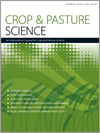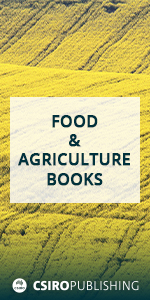CP17409Indirect selection for potential yield in early-generation, spaced plantings of wheat and other small-grain cereals: a review
Plant breeding continues to raise grain yields but progress is slowing. New remote-sensing methods could target selection traits related to yield in early generations following hybridisation and thereby boost breeding efficiency. The theory of such indirect yield selection is reviewed, and three promising traits, harvest index, fruiting efficiency and stomatal conductance, are discussed in detail.
CP17409 Abstract | CP17409 Full Text | CP17409PDF (704 KB) Open Access Article




